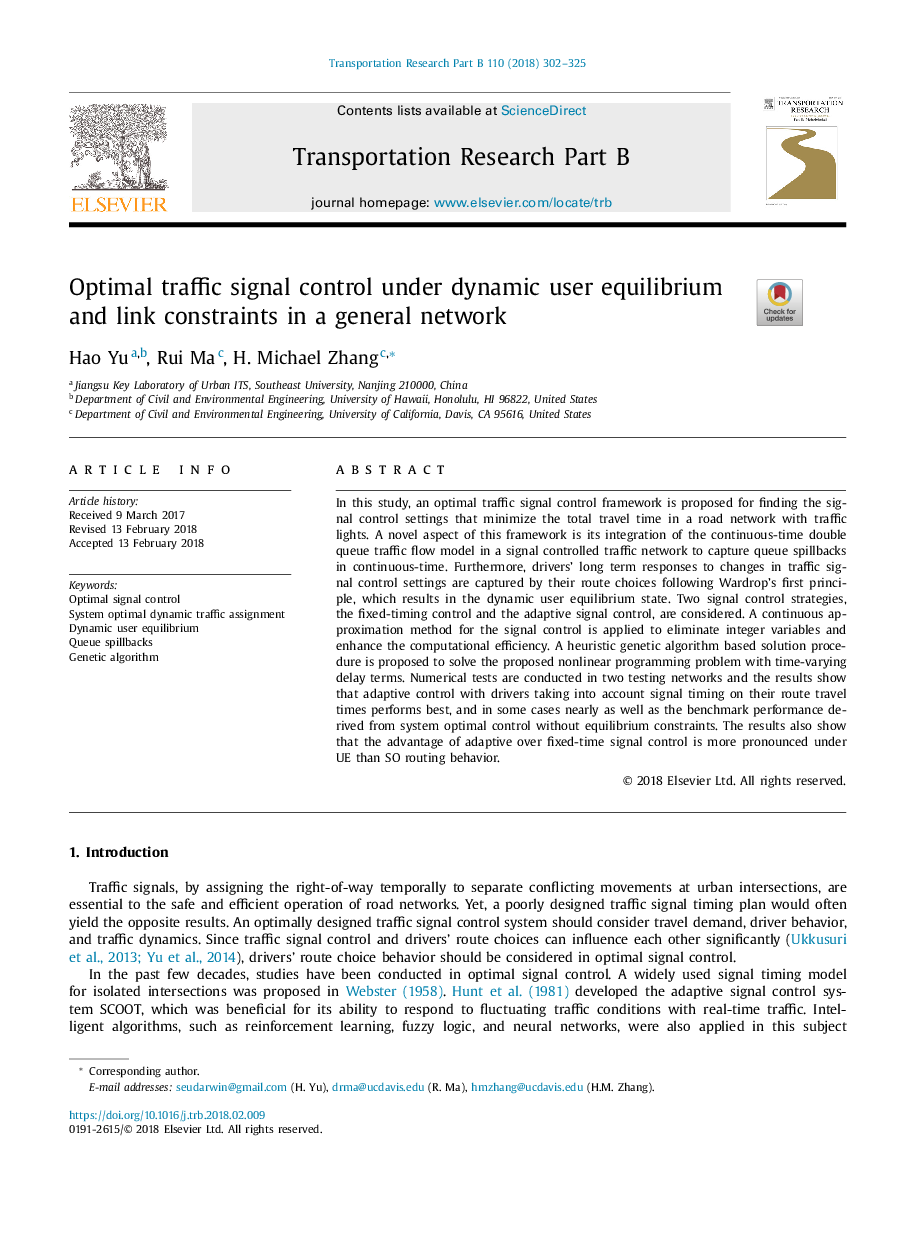ترجمه فارسی عنوان مقاله
کنترل سیگنال بهینه تحت تعادل کاربر پویا و محدودیت های لینک در یک شبکه عمومی
عنوان انگلیسی
Optimal traffic signal control under dynamic user equilibrium and link constraints in a general network
| کد مقاله | سال انتشار | تعداد صفحات مقاله انگلیسی |
|---|---|---|
| 114049 | 2018 | 24 صفحه PDF |
منبع

Publisher : Elsevier - Science Direct (الزویر - ساینس دایرکت)
Journal : Transportation Research Part B: Methodological, Volume 110, April 2018, Pages 302-325
ترجمه کلمات کلیدی
کنترل سیگنال مطلوب، تخصیص ترافیک پویا بهینه تعادل کاربر دینامیک، خطوط قرمز الگوریتم ژنتیک،
کلمات کلیدی انگلیسی
Optimal signal control; System optimal dynamic traffic assignment; Dynamic user equilibrium; Queue spillbacks; Genetic algorithm;

